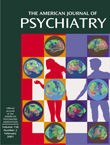Assessing the Subjective Experience of Being a Participant in Psychiatric Research
Abstract
OBJECTIVE: To address both clinical and ethical concerns in psychiatric research, the study assessed the subjective experience of being a participant in a feasibility study of outcome in long-term psychodynamic psychotherapy and psychoanalysis. METHOD: A questionnaire assessing positive and negative reactions to three typical research methodologies (self-report questionnaires, structured diagnostic interviews, and tape-recording of sessions) was administered to 23 patient-therapist pairs. RESULTS: Patients reported that questionnaires and interviews were slightly to moderately helpful in promoting self-realization and facilitating therapy, and not at all to slightly intrusive and disruptive. Adjustment to audiotaping of sessions was rapid (within two sessions). Therapists significantly overestimated the negative effects and underestimated the positive benefit patients reported from participating in research. CONCLUSIONS: Traditional objections to research in dynamic psychotherapy on the grounds that patients experience research procedures as significantly intrusive and disruptive appear to be unfounded.



